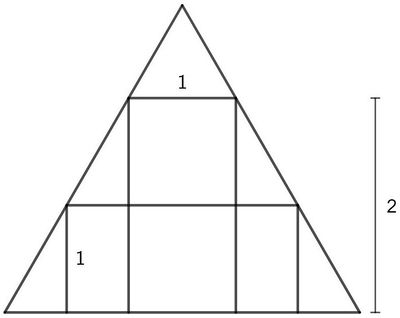Difference between revisions of "2021 JMPSC Accuracy Problems/Problem 12"
(→Problem) |
(→Problem) |
||
| Line 1: | Line 1: | ||
==Problem== | ==Problem== | ||
A rectangle with base <math>1</math> and height <math>2</math> is inscribed in an equilateral triangle. Another rectangle with height <math>1</math> is also inscribed in the triangle. The base of the second rectangle can be written as a fully simplified fraction <math>\frac{a+b\sqrt{3}}{c}</math> such that <math>gcd(a,b,c)=1.</math> Find <math>a+b+c</math>. | A rectangle with base <math>1</math> and height <math>2</math> is inscribed in an equilateral triangle. Another rectangle with height <math>1</math> is also inscribed in the triangle. The base of the second rectangle can be written as a fully simplified fraction <math>\frac{a+b\sqrt{3}}{c}</math> such that <math>gcd(a,b,c)=1.</math> Find <math>a+b+c</math>. | ||
| − | |||
<center> | <center> | ||
[[File:Sprint13.jpg|400px]] | [[File:Sprint13.jpg|400px]] | ||










